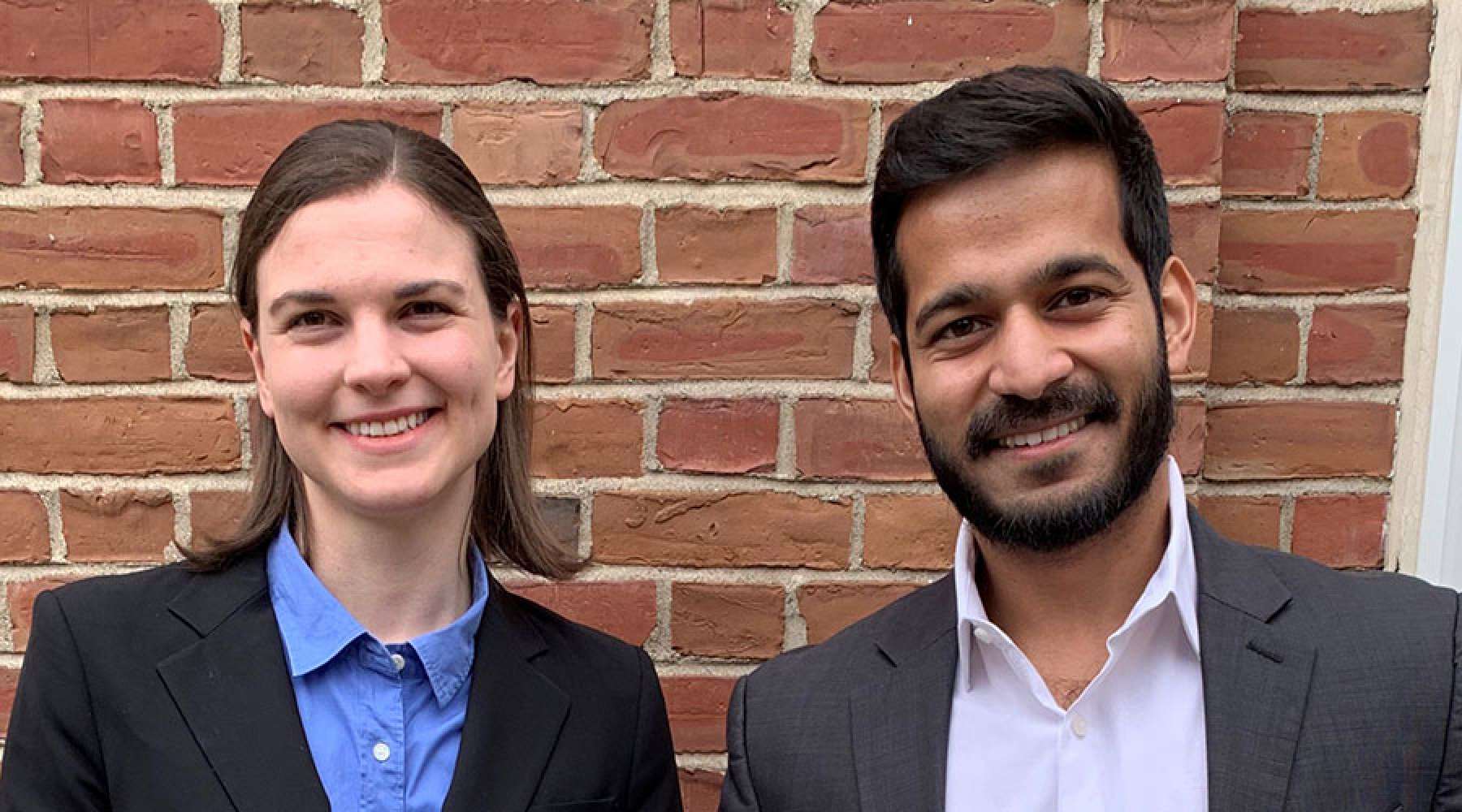
Joemma Berberich and Nikilesh Eswarapu, both T’19s, are student leaders for the Tuck Mindfulness Society, which offers mindfulness meditation classes to the entire Tuck community throughout the academic year. We talk about why they practice meditation, and how it fits in with business school, work and life.
Joemma: Before business school, I had a demanding job and was traveling a lot. I had a colleague who meditated regularly and did silent retreats and talking with her piqued my interest. When I tried it, I immediately saw that meditation was hard. It’s like starting to exercise – you don’t make immediate gains.
I found over time, though, that it helped me to become more aware about how I was feeling in any given moment. We often go without recognizing our emotions. It was powerful to have that awareness and to recognize that though I couldn’t control what was happening around me, I could control my response.
Nikilesh: I was first exposed to meditation the summer before business school after reading about a tech executive who claimed that his mind worked differently after a meditation retreat. I had never realized meditation could be a path towards functioning better, so I decided to do a retreat. The experience was transformational for me, and from then on, I wanted to make it a regular practice.
Joemma: There’s always so much going on at Tuck, which is amazing but can be overwhelming. I’ve found it useful to carve out that time with myself.
I also think meditation encourages self-kindness. In meditation, failure never goes away and your mind will find ways to take you out of the moment. Failure is also going to happen in life sometimes, despite your best efforts. My practice has helped me to focus less on judging or holding on to those experiences when they happen and to focus more on recognizing what I can learn from them.
Nikilesh: I’ve found it very helpful, while in a demanding job, to step outside for 10 minutes, find a bench, and take a break with an app like Headspace. I’ve found tremendous benefit in terms of how much better I am at completing work, with more focus and clarity. Practicing in a professional setting is not at all disruptive.
There are different approaches to meditation. What resonates most for me is focusing on the breath, or progressively concentrating on different parts of the body and then my surroundings. These both build up towards what I can best describe as a present moment awareness where my mind is quiet yet awake. I’d urge people to explore different approaches because some might resonate more than others.
My goal is always to try and practice after I wake up, but it’s tough in the dynamic atmosphere of business school. I haven’t always been as consistent as I want to be, but it’s helpful to have the structure of the Tuck Mindfulness sessions to help me get back into the swing of things.
Nikilesh: I do a reading mentorship session with an elementary school student once a week. It’s a way for me to completely disconnect from everything else and just be there with him, with us reading back and forth to each other. A goal could be to bring that type of mindfulness to everyday things, taking time to let your mind quiet down.
Nikilesh: My goal initially was to improve my ability to execute, but a big benefit I didn’t expect was to be calmer, happier, and more at bliss. Another benefit is that I’ve begun to reflect more on whether I’m doing the right kinds of activities or approaching things the right way. This has allowed me to be more conscious and adaptable to how I’m approaching life, rather than just working hard with a fixed mindset.
Joemma: Mindfulness is not a silver bullet, but it has helped me become more aware of being present, which I’ve tried to bring to the rest of my life. It’s easy to get in a loop of ruminating about the past or focusing on anxieties about the future. Being at Tuck is a special experience that I won’t have again. Meditation have helped remind me to be aware of the present moment and to appreciate it instead of always being focused on what happened in the past or on the next thing.
Joemma: One benefit I didn’t expect from leading the club was that I’ve been more reflective about the benefits of my practice, because of the conversations we’ve had around planning out the year’s programming and messaging.
Nikilesh: It’s nice to have one on one conversations about my experience with other students who are interested and curious. There’s a momentum in society in general around meditation and mindfulness, and it’s nice to be a part of that movement and help introduce others
Joemma: Through mindfulness meditation here at Tuck, I’ve met people I wouldn’t have met otherwise, and built connections around a shared interest. We have a very open, supportive community and it’s been a highlight of my time at Tuck.